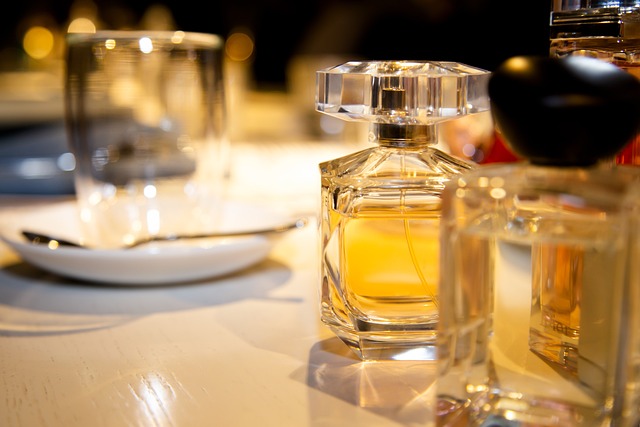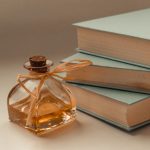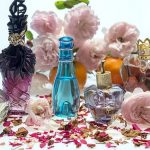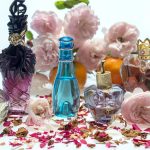Arabic perfumes encapsulate centuries of tradition and the essence of Middle Eastern culture. Far from being mere fragrances, these intricate creations carry stories of artistry, heritage, and cultural depth. Today, modern UAE perfume shops are redefining this ancient craft, merging it with contemporary tastes and innovative techniques to bring an unparalleled sensory experience to fragrance lovers worldwide.
Ancient Beginnings: The Origins of Arabic Perfumery
Arabic perfumery is deeply rooted in history, with origins dating back to the ancient civilizations of Mesopotamia, Egypt, and the Arabian Peninsula. Fragrance, in those times, went beyond personal adornment—it played a vital role in religious ceremonies, medicinal practices, and social traditions. Essential oils and fragrant resins like frankincense and myrrh were highly sought after, used by pharaohs, traders, and royalty alike. These natural ingredients were more than just aromas; they were sacred offerings and symbols of wealth and status.
The rise of the Silk Road allowed for the widespread trade of aromatic goods, from sandalwood to exotic spices and oils. Arabic merchants played a pivotal role in popularizing these luxurious elements across Europe and Asia. With their deep understanding of blending and extraction, Arabic artisans began to transform these raw ingredients into rich, intricate scents. These early creations formed the foundation of what we now recognize as Arabic perfumes—fragrances celebrated for their intensity, warmth, and layered complexity.
The Signature Ingredients of Arabic Perfumes
The heart of Arabic perfumes lies in their ingredients, many of which are rare, precious, and possess a distinctive aroma that sets these scents apart. In a UAE perfume shop, one will find these traditional elements showcased prominently, each with its own cultural and sensory significance.
- Oud: Known as one of the most prized ingredients in Arabic perfumes, oud is harvested from the resinous wood of the agar tree. Often called “liquid gold,” oud has a deep, woody aroma that is both sensual and powerful. Its complex character adds mystery and allure, making it a quintessential element in many Arabic fragrances.
- Frankincense: This ancient resin has a unique, earthy aroma that evokes a sense of history and reverence. Traditionally used in spiritual rituals, frankincense brings warmth and depth, making it a key component in perfumes with a rich, exotic profile.
- Rose: The Damask rose, known for its soft, captivating scent, is a frequent addition to Arabic perfumes. Its floral sweetness balances the intensity of oud and frankincense, creating an alluring harmony that appeals to both men and women.
- Amber: With its sweet, balsamic undertone, amber is cherished for adding a velvety warmth to fragrance blends. It provides a smooth finish that lingers, giving perfumes a rich and comforting presence.
- Saffron and Musk: Often used to introduce a hint of spice and sensuality, saffron and musk add an exotic twist, elevating the perfume’s complexity. Musk’s natural appeal blends seamlessly with other elements, while saffron adds a unique layer of spiciness.
The Art of Crafting Arabic Perfumes: Skill, Patience, and Precision
The process of creating Arabic perfumes is both a science and an art, requiring a deep knowledge of ingredients, an instinct for balance, and, above all, patience. Unlike many modern perfumes that are mass-produced, Arabic fragrances are typically handcrafted, with artisans spending weeks or even months to develop each blend.
Many UAE perfume shops maintain this dedication to traditional craftsmanship. Here, artisans follow ancient techniques such as slow distillation and maceration to extract the purest essence of each ingredient. This labor-intensive process ensures the depth and richness of the final product, allowing the fragrance to evolve over time as it’s worn, revealing layers of scent that speak to the heart of Arabic culture.
The unique art of layering scents is particularly essential in Arabic perfumery. A well-crafted Arabic fragrance is designed to transform over time: top notes introduce a strong opening, heart notes provide depth and character, and base notes create a lasting, warm finish. This progression is a reflection of the art of storytelling—a sensory journey that unfolds with each layer, captivating the wearer in an experience that is as emotional as it is olfactory.
UAE Perfume Shops: Where Heritage Meets Modernity
Walking into a perfume shop UAE is akin to stepping into a sanctuary of scent. These boutiques are not just retail spaces; they are portals into the world of Arabic perfumery. The ambiance is usually serene, filled with soft lighting and the inviting warmth of oud and amber in the air.
For customers, the experience is often personalized, guided by knowledgeable staff who help navigate the selection of perfumes based on individual tastes. Rather than simply making a sale, the goal is to match each person with a fragrance that resonates deeply with their identity and preferences. Many shops offer customized fragrance blends, allowing clients to select specific ingredients, turning their shopping experience into a collaborative, creative process.
At boutiques visitors find an extensive range of scents that blend classic Arabic elements with modern influences, appealing to a broad audience while staying rooted in cultural authenticity. This blending of traditional with contemporary design is what makes UAE perfume shops unique—they are a fusion of heritage and innovation, giving customers a taste of Arabic culture with a fresh, modern twist.
The Social and Cultural Impact of Perfume in Arabic Society
In Arabic culture, perfumes hold a special place that transcends mere adornment. They are part of social etiquette, religious practices, and personal identity. Gifting fragrance, especially during celebrations like Ramadan and Eid, is a cherished tradition symbolizing respect, love, and connection. Families often pass down signature scents as a legacy, creating a bond that bridges generations.
Furthermore, perfume is used to mark life’s important moments. During weddings, religious ceremonies, and gatherings, fragrance plays a central role, welcoming guests with an aromatic embrace. The scent of oud burning on a mabkhara (traditional incense burner) is a familiar presence in Arabic households, a symbol of hospitality and warmth that has endured through centuries.
In modern times, the growing global popularity of Arabic perfumes has introduced new audiences to these cultural practices, turning fragrance into a shared experience that transcends borders. UAE perfume shops have become cultural ambassadors, representing the richness of Arabic heritage while welcoming a world of fragrance lovers.
Sustainability in Arabic Perfumery
With the increasing focus on environmental sustainability, UAE perfume shops are making strides to adopt eco-conscious practices. Many brands now prioritize ethical sourcing, particularly of rare ingredients like oud, which is known for its environmental impact due to high demand. Sustainable sourcing practices, including ethical partnerships with suppliers and using renewable materials, are part of this commitment.
Additionally, some shops offer refillable bottles and eco-friendly packaging, aligning with a broader movement toward reducing waste. By combining these sustainable practices with traditional craftsmanship, UAE perfume shops are ensuring that the artistry of Arabic perfumes can be preserved responsibly for future generations.
The Timeless Allure of Arabic Perfumes
From ancient trade routes to the shelves of modern UAE perfume shops, Arabic perfumes have journeyed through history, adapting to changing times while preserving their essence. Each fragrance is a bridge connecting past to present, bringing a piece of the Middle East’s cultural legacy to the world. For those who wear these perfumes, it’s more than a scent; it’s an experience, a way to carry a part of Arabic tradition wherever they go.
As the craft of Arabic perfumery continues to evolve, its timeless appeal endures. UAE perfume shops stand as beacons of this tradition, offering fragrances that capture the soul of the region while embracing the possibilities of the future. In every bottle lies a story, a legacy, and a promise—one that transcends time, inviting fragrance lovers to become part of an enduring journey.
Image by Ольга from Pixabay (Free for commercial use) Source
Image October 8, 2019







